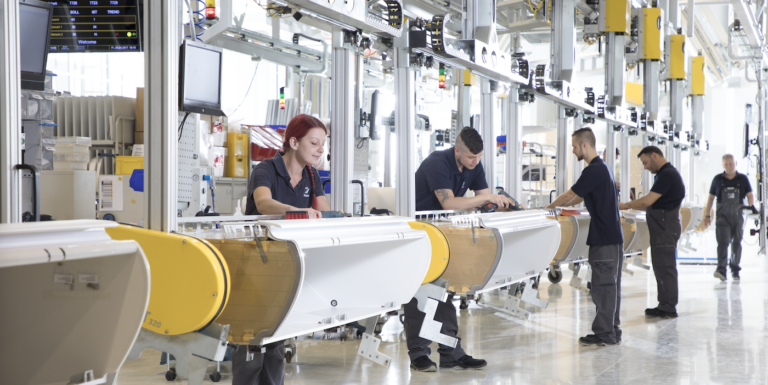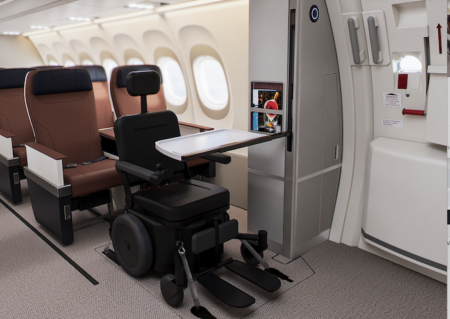2024 marks the 35th anniversary of FACC, the Austria-based aircraft interiors supplier. Since its foundation in 1989, the company has grown from a small team of visionaries working in the Fischer Ski & Tennis research department, to become a global player in the aerospace industry.
Today, says the company, you will not find a single major aircraft that does not have FACC equipment on board. Customers include all major aircraft manufacturers, such as Airbus, Boeing, Embraer, Bombardier, COMAC, Collins, Rolls-Royce, and Pratt & Whitney.
A key ethos at the company is to minimise weight and thus lower fuel consumption for aircraft operators; a philosophy born from the team of visionaries at ski manufacturer Fischer, who in the early 1980s conducted research into resilient and ultra-lightweight materials. On 1st October 1989, the formerly independent division was spun off from the Fischer ski group, resulting in the founding of FACC (at that time short for ‘Fischer Advanced Composite Components’) as a fully owned subsidiary of Fischer.
FACC weathered the storm of the pandemic and is confident in its future. The company notes that the aerospace industry currently boasts full order books for years to come. FACC is benefiting from this, with a record order backlog of US$5.8 billion. This growth is set to continue in the future – by 2042, demand for new aircraft in civil aviation will exceed 40,000 units. The major goal of the international industry is to achieve a 75% cut in CO2 emissions by 2050 – and lightweight construction, such as the hardware manufactured by FACC will make a significant contribution to achieving this goal.

Other changes afoot in aviation include the new fields of Urban Air Mobility and Space travel, which FACC is adding to its core segment of civil aviation. The company has secured numerous orders from leading eVTOL manufacturers (drones and air taxis), and has been involved in the development of these new mobility systems. By 2050, 68% of the population is expected to live in megacities with more than 10 million inhabitants, resulting in a strong demand for urban mobility. FACC expects the UAM market will have enormous growth potential, with analysts estimating this segment at around US$50 billion per year from 2040 onwards.
“A corporate spirit focused on offering the best solutions for our customers and identifying new business areas is still a hallmark of FACC, even 35 years later,” stated CEO Robert Machtlinger. “The aerospace industry has undergone a highly dynamic development in recent years. Lightweight construction as a cross-sectional technology to meet the climate targets in aviation has never been in greater demand. With our global customers in our core segment – civil aviation – and new players on the market (UAM and Space), we are able to contribute our innovative strength to making flying even more sustainable as a partner of all major OEMs.”





